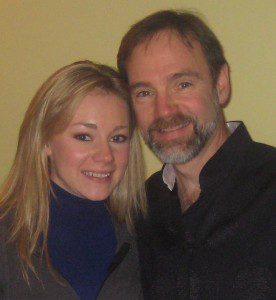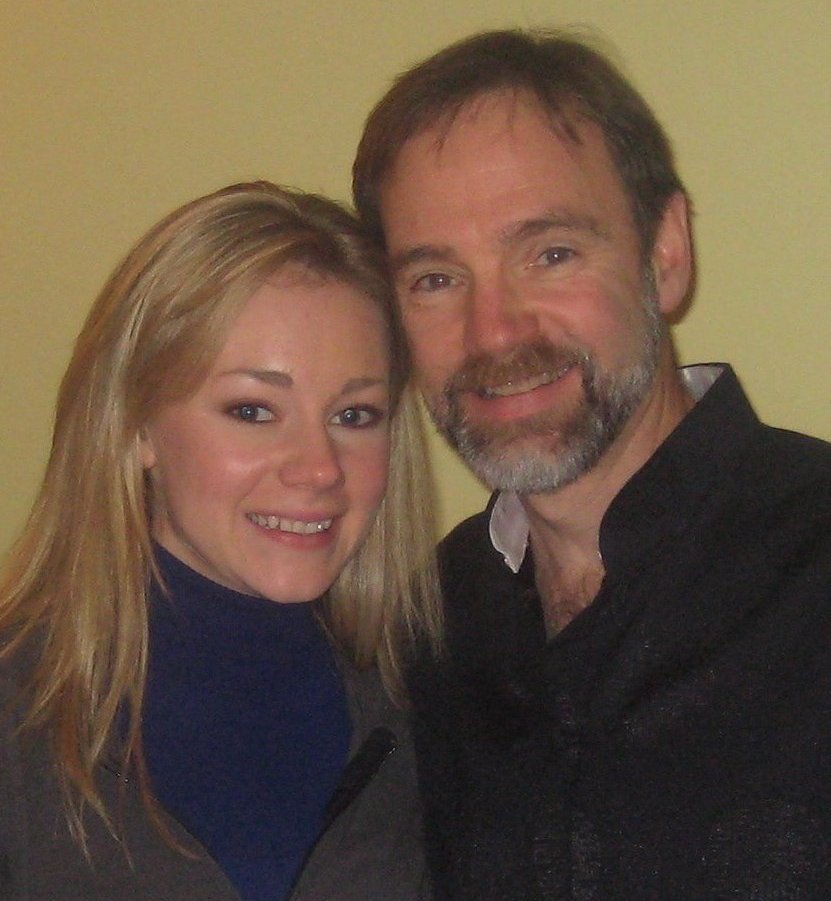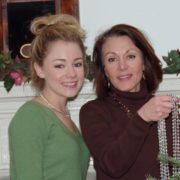The Philadelphia Inquirer (front page, 1-7-10), “Loss of daughter helps lawyer feel clients’ pain”

Joel Feldman with his daughter, Casey, in a family photo. He used the skills he made making settlement videos put together a DVD about her. Go to Remembering Casey DVD to see the video.
“Loss of daughter helps lawyer feel clients’ pain”By Chris Mondics
Posted on Thurs, Jan. 7, 2010
The phone call every parent dreads came July 17, late in the afternoon, just as plaintiffs’ lawyer Joel Feldman was wrapping up a videotape interview in a medical-malpractice case with a cancer patient and his parents, who spoke of their emotional devastation.
For decades, Feldman has made a good living suing insurance companies, construction firms, and manufacturers on behalf of accident victims.
One reason he has done so well is that he has gotten adept at conveying the physical and psychic trauma visited on victims and survivors by acts of negligence that, at their core, result from someone else’s bad judgment – an inept physician, a reckless tractor-trailer driver, a construction company that failed to properly protect an employee’s safety.
Feldman helped pioneer the use of a powerful trial lawyers’ tool called a settlement video. The 15-minute DVDs typically feature interviews with surviving victims, family members, and expert witnesses that give defendants a taste of what they might face if they go to trial.
The intellectual and emotional message of the videos can be withering. Defendants often settle after viewing them. And that is the goal.
Over the years, Feldman says, he thought he understood the emotional turmoil of his clients and their devastation. But now he knows he did not.
The phone call that day came from police in Ocean City, N.J., who said Feldman’s 21-year-old daughter, a beautiful and vivacious communications major at Fordham University, had been hit by a delivery van as she walked to her job as a waitress on the boardwalk.
By 9:15 p.m., Casey Feldman had died, and Joel Feldman’s world – and that of his wife, Dianne, and his 19-year-old son, Brett – had merged tragically with those of his clients.
“I have represented, I don’t know, 100 families who have lost [loved ones] over 30 years,” said Feldman, who has won dozens of verdicts and settlements of $1 million or more for clients. “We talk about how we know what our clients are going through. We don’t know. We can take a guess at it. I am getting better at that now.”
For Feldman, 55, each day has been like climbing a mountain.
He has studied the police reports, the witness statements, and accident reconstruction. He has taken an interest in proposals to strengthen traffic safety for pedestrians in New Jersey.
He and his wife have set up a memorial foundation for their daughter, whose blond hair and sense of humor could easily have qualified her as an understudy for the young Goldie Hawn. The foundation provides fellowships and stipends to college students who need financial support so they can take unpaid internships with potential future employers.
“I know I am different”
But mostly, it is about dealing with what the soft-spoken Feldman calls the daily task of mourning, working hard to keep Casey’s memory alive and to prevent the loss from becoming a crippling handicap as he and his wife try to move forward.
When Feldman returned to his office at Anapol, Schwartz, Weiss, Cohan, Feldman & Smalley P.C., a highly successful plaintiffs’ law firm based in a sprawling and elegantly refurbished brownstone two blocks off Rittenhouse Square, he was irked by well-meaning assurances from colleagues that they did not expect him to do much for a while.
“There have been people who have said ‘I have a new case, when you are up to it, can you take a look at it?’ ” said Feldman, the firm’s managing partner. “Well-intended. But I have suffered this incredible loss. I am different. I know I am different. I don’t want to suffer other losses. I don’t want my partners to say Joel can’t handle it.”
Feldman says that one thing he has learned is that it is helpful to talk about his loss. So attempts to engage him never offend.
“There was not a single person who has reached out to me who I thought was putting their nose into my business or grief,” he said. “The way I look at it is, if you care, reach out, because if you don’t, I don’t know. Inaction . . . I have no way of interpreting.”
Roller coaster of grief
So Feldman, a native of South Fallsburg, N.Y., about 100 miles northwest of New York, has thrown himself into his work. One of the first things he did when he got back was to complete the settlement video he had been making the day his daughter died.
“It was difficult, but I felt that I had to do it,” Feldman said.
He conferred with a father who had lost a child and had come to the firm for legal representation.
The man asked Feldman for advice on how to cope with his loss, and what he might expect on his roller coaster of grief. Feldman obliged.
One thing that helped was that Feldman had enrolled in a graduate program in counseling at Villanova University, before Casey had died, to help him better understand clients and colleagues.
The events leading to the accident that claimed Casey Feldman’s life are straightforward.
The police accident report says that the driver – a 59-year-old snack salesman from Cape May Court House, N.J., named Anthony Lomonaco – was traveling north on Central Avenue in Ocean City, a broad two-lane street with clear sight lines that runs north and south two-and-a-half blocks off the boardwalk.
The only eyewitness to the accident told police that Lomonaco rolled through the stop sign at Central and 14th Street and accelerated into the intersection as Casey, a graduate of Springfield High School in Delaware County, walked in the crosswalk across Central, raising her arms in a defensive posture just before impact.
Lomonaco told police he never saw Casey, who had been walking to her job at a boardwalk restaurant.
The police, based on an accident reconstruction, said she had been in the crosswalk a minimum of six seconds and was more than two-thirds of the way across the intersection when she was struck.
There was no evidence of drug or alcohol use by Lomonaco, according to police. They said that his vehicle was in good repair and that he had been driving under the legal speed limit of 25 miles per hour. One of the investigating officers, moreover, said he had stopped at the stop sign before proceeding into the intersection. The call log on his cell phone showed that he was not on the phone at the time of the accident.
Even so, the investigating officers concluded that Lomonaco was at fault and issued tickets for careless driving and failing to yield to a pedestrian.
“The driver . . . operated his vehicle in a careless manner and subsequently failed to observe the pedestrian traveling within the marked crosswalk located on the north side of the intersection,” the police report said.
Lomonaco never contacted the family after the accident, he says, on the advice of his attorney, as it turns out a fairly common bit of legal advice in matters such as this.
But during a brief interview outside his tidy ranch house in Cape May Court House, Lomonaco said that the accident had a shattering effect on him and that “I am in mourning.”
“I am so, so sorry that this happened; I am sorry for the family,” he said.
Feldman has not filed a lawsuit, and he suggested the matter might be settled short of formal legal action.
“Whatever proceeds we will get will just be put into the foundation,” Feldman said.
But he is bothered that Lomonaco never contacted him.
“He never reached out to our family, and that is very troubling to me and my wife,” Feldman said. “People ask, ‘Can you forgive him?’ ”
He answers his own question: “I have never met him.”
Apart from work, much of Feldman’s energy these days is absorbed by the memorial foundation and by Web sites he set up for friends of Casey and the family to share their memories and keep up with one another.
A half-dozen or more of Casey’s friends show up at the Feldmans’ home in Springfield, Delaware County, every Tuesday to share dinner and, occasionally, to watch a movie.
He marvels at how a driver’s carelessness places others at risk. He will sometimes watch for drivers on their cell phones, eating, fixing their hair, or doing other distracting things that greatly increase the odds of an accident.
Not that he is holier-than-thou about it. Feldman says he himself has veered onto the rumble strips along the side of a highway as he chatted distractedly on a cell phone. Although it seems clear that Lomonaco was not on a cell phone at the time of the accident, Feldman says the larger issue is the need to avoid distractions and focus on safety while driving. He has made a vow never to talk on his cell phone again while driving, and many of Casey’s friends have, too.
“I will see people who are texting, people who are making phone calls, I see women using that thing to make their eyelashes look better, you see people eating with one hand and holding a cell phone with the other, and you know they are holding the steering wheel between their thighs,” Feldman said.
“If you are not paying attention, all it takes is a second of inadvertence. You could kill someone and affect a number of lives. There is an incredible ripple effect.”
But Feldman is not the critical, scolding type. More than anything, his mission seems to be getting the word out about how Casey was loved by friends and family.
He used the skills he learned making settlement videos to put together a DVD with reflections from the people who knew her – friends, relatives, classmates, roommates.
He did the interviews. A videographer who works with Feldman on accident lawsuits did the video recording and editing. In interview after interview, interspersed with still photos and videos of Casey, loved ones and friends share memories that convey in unmistakable terms the joy of knowing her.
And the profound sense of loss they now feel.
Go to the “Remembering Casey DVD” to view the video.




tear:(
Comments are closed.